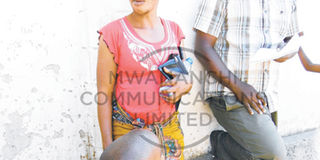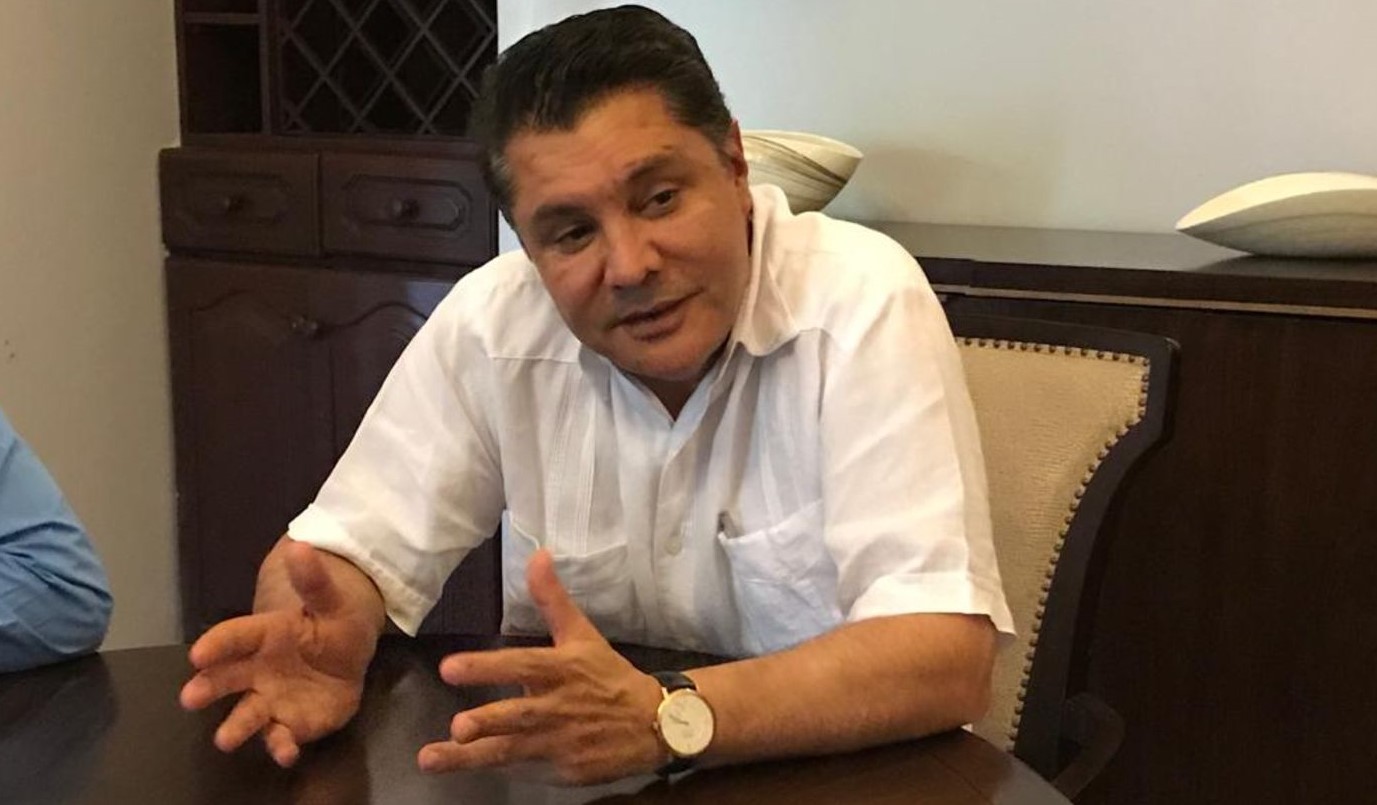Herbalist ‘wasted our time, money’

Four -year -Old Aneth Richard with her mother Elizabeth Joseph in Kamang Village. PHOTO|JONATHAN MUSA
What you need to know:
- While she believed she was doing what any desperate mother would do to save her baby, with hindsight, she regrets having wasted time and denying her child access to proper treatment.
Mwanza. For two years, Ms Elizabeth Joseph, 32, used traditional medicines for her four-year-old girl Aneth Richard, who is suffering from hydrocephalus, a condition that occurs when cerebrospinal fluid (CFS) builds up in the skull causing the brain to swell.
While she believed she was doing what any desperate mother would do to save her baby, with hindsight, she regrets having wasted time and denying her child access to proper treatment.
“Aneth is still weak. She still cannot walk on her own, and she looks younger than she actually is,” says the mother of two, a resident of Bukokwa Village in Sengerema District.
What drove her to embark on countless trips to the remote village of Kisolya in Bunda District was mainly the belief in witchcraft among her family members. They also strongly believed a bad spell had been cast on the young girl.
So, the only way out was seeking the charm of traditional healers -- far from the corridors of hospitals and clinics.
She says: “After consulting my family members, including my husband Elias, I knew my daughter had been bewitched and that some strange spirit caused the illness.”
That was before she met health officials from the Bugando Medical Center (BMC), who counselled and convinced her to stop seeking help for a medical condition in the wrong places.
After meeting the health workers, she decided to seek proper treatment for her daughter at the clinic where the child was diagnosed with Hydrocephalus on April 26, this year.
Many parents whose children suffer from such disease here tend to seek traditional healing, says the executive director for the friends of Children with Cancer (FOCC), Mr Walter Miya.
According to him, for years, traditional and customary beliefs have been denying children in the Lake zone the right to the recommended treatment.
Elizabeth’s daughter has been receiving traditional treatment for hydrocephalus and spinal bifida at Kisolya Village in Bunda District.
She says her daughter’s ordeal began when she was two years old. She began developing a rapid increase in head size, and that she could not walk upright.
Elizabeth says her daughter has also developed a soft spot on the surface of her skull.
Ms Elizabeth says her journey to seek traditional healing for her daughter’s disorder started in 2014, and that she has been travelling to Kisolya Village in Bunda District for treatment for her daughter.
“By then, Aneth was two-years-old,” she says. According to her, a famous traditional healer in Kisolya Village was believed to treat any disease linked to superstition.
“I was accompanied by my husband when I went to Kisolya to meet the traditional healer,” she recalls.
She said they stayed in Kisolya for nearly two months when her daughter was undergoing traditional treatment.
While attending treatment, her daughter was instructed to drink two glasses of ‘special’ water everyday.
When they returned home, the daughter’s condition briefly improved.
She kept going to the traditional healer whenever the daughter’s condition worsened. “Personally, I did not believe Aneth’s condition had really improved, but I was forced to believe so by the traditional healer and some family members,” sha says.
According to her, she paid Sh400, 000 for the traditional treatment. After much counselling by Sengerema Mission Hospital staff, she accepted to seek hospital treatment for her daughter.
She said that medical checkups at BMC shows that such disease can only be treated medically.
She said that she was advised to revisit the hospital on April 27, this year where the doctor prescribed for a shunt insertion which is a drainage system made of a long tube with a valve and is surgically implanted.
According to doctor Othman Kiloloma, an executive director and a neurosurgeon from the Muhimbili Orthopedic Institute (Moi), the inserted valve helps cerebrospinal fluid (CFS) which drains excessively in the brain to drain out from the other end of the tube to a part of a body where it can be easily absorbed.
He said too much of CFS puts pressure on the brain which pushes the brain upwards against the skull and damaging the brain tissue adding that the spinal cord where the spinal column also fails to close properly. But he said that children who are implanted with shunt have to be monitored regularly.
Meanwhile he said that the Lake Region has a high number of children suffering from Hydrocephalus and spinal bifida complications.
Doctor Othman said that children suffering from the complications can be treated and healed adding that lack of balanced diet in pregnant mothers is the cause of the defects including lack of folic acids which help to prevent neural tube defects (NTDs).
He added that many pregnant women here also don’t attend prenatal care during pregnancy.
“Neural Tube Defects occur to part of the embryo from which the baby’s spine and brain develop but consumption of folic acids to pregnant mothers will reduce the baby’s risk of neural tube defects,” he said
Statistics indicate that 4000 of born children develop the hydrocephalus and spinal bifida complications and out of this figure, 2000 are from the Lake zone.
But he said very few parents will take their children to the hospital. They prefer traditional treatment.
“There are beliefs from people in the lake zone that such complications are a result of witchcraft, hence they seek traditional healing,” he said
According to the director general at BMC hospital Professor Kien Mteta out of 2000 born here with hydrocephalus and spinal bifida complications only 400 manage to seek hospital treatment.
For example, he said that many children arrive at the hospital when the hydrocephalus complications are at the late stage.
Doctor Mteta added that families with children suffering from hydrocephalus condition are denied treatment because of the stigma which translates to the society living around that the family is associated with witchcraft practices.
“Children with hydrocephalus complications are kept indoors and denied treatment a condition which prolong their brain damage,” he said
FOCC director says that awareness is underway to mothers in the Lake Region and medical experts where many children are born with hydrocephalus and spinal bifida medical complication and instead are offered with traditional treatment.
Mr Walter said that FOCC fund treatment operation for children under the age of five but the government should intervene and help fund for their treatment because most of the parents cannot afford treatment coat.
“We perform surgical operations to twenty children in every week adding that the number is overwhelming,” he said
But he said that medical treatment for children above five years experiences financial challenges because most of the parents who are poor cannot afford to pay treatment fee. In addition he said that medical cost include purchasing of the shunt pipe at over Sh 280,000, surgery processes costs at Sh 350,000, medical drugs costs over 100,000 and regular transport fee for medical checkups.
“Many poor parents fail to raise the treatment cost and the more the child delays receiving treatment the more the brain is damaged,” he said
More so, he said the country faces an acute shortage of neurosurgery experts which holds back effective treatment to children suffering from hydrocephalus and spina bifida.
But he said the available few are offering treatment at the Muhimbili Ortopaedic Institute (MOI) instead of being dispatched to the regional health centres.



